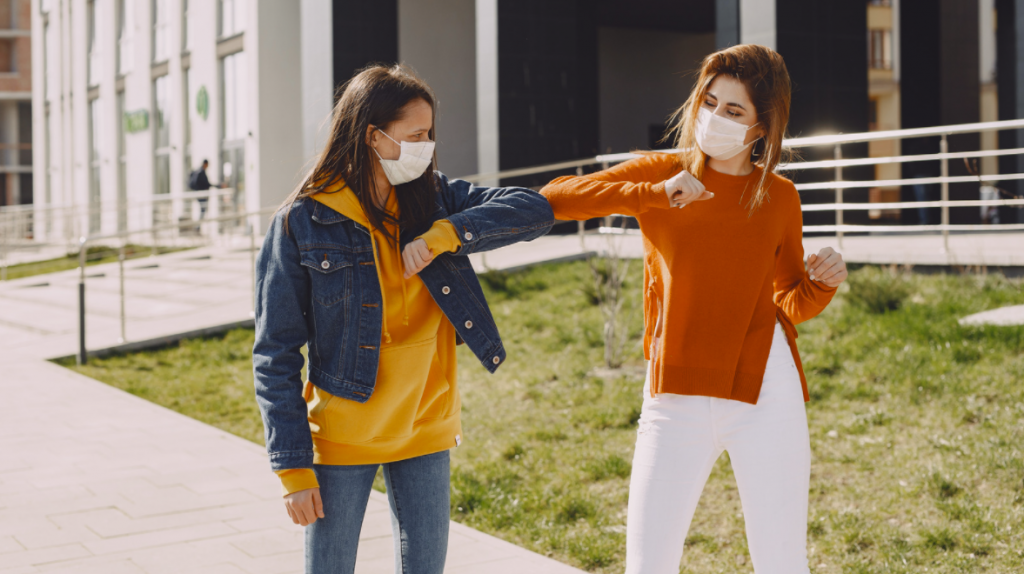
Vaccines for COVID-19 are critical tools for helping bring the pandemic under control when combined with effective testing and existing prevention measures. With several vaccine candidates approved by the World Health Organisation, countries including North Macedonia have started to rollout COVID-19 immunization.
The threat to children posed by COVID-19 is enormous, extending far beyond the immediate physical effects of the disease. As lockdown restrictions continue or are re-imposed, children’s access to essential health services may be seriously affected. The resulting reductions in routine healthcare coverage levels and a looming recession are threatening the health and the future of a generation of children. Below are answers to some of the most common questions you might have about COVID-19 vaccines.
Are approved COVID-19 vaccines safe?
Yes. To be approved for use, COVID-19 vaccines must meet the highest safety and efficacy standards. Although COVID-19 vaccines were developed in record time, the process has not made the systems for testing, assessing results, and approving a vaccine any less rigorous. The World Health Organization (WHO) is carefully monitoring the rollout of all COVID-19 vaccines.
How do the vaccines work?
Vaccines teach our immune system to build specific antibodies against disease-causing viruses and bacteria or their toxins. Your body becomes armed to fight these without ever having to become sick first. So, in the future when the body encounters the viruses or bacteria against which vaccines are made it already knows how to defeat them.
What are the differences between different types of COVID-19 vaccines?
Several types of COVID-19 vaccines have been developed, or are in development, including:
- Inactivated or weakened virus vaccines, which use a form of the virus that has been inactivated or weakened so it does not cause disease, but still generates an immune response.
- Protein-based vaccines, which use harmless fragments of proteins or protein shells that mimic the COVID-19 virus to safely generate an immune response.
- Viral vector vaccines, which use a harmless virus that carries the coronavirus proteins to safely generate an immune response.
- Nucleic acid (mRNA) vaccines use genetically engineered RNA to generate a protein that itself safely prompts an immune response.
Can I get sick with COVID-19 from the vaccine?
No. None of the current vaccines contain the live virus that causes COVID-19. This means that a vaccine cannot make us sick with COVID-19. Mild symptoms reported by vaccinated persons (pain, skin redness at the injection site, headache and fever) are only proof that your immune system is activated.
Can COVID-19 vaccines alter my DNA?
No. Even those vaccines called mRNA vaccines do not change or interact with your DNA in any way. The mRNA vaccines instruct our cells how to make a protein that triggers an immune response and then dissolves immediately. This builds immunity against the virus that causes COVID-19. The mRNA (i.e., the instructions) from a vaccine never enters the nucleus of the cell, which is where our DNA is kept.
Is it safe to get a COVID-19 vaccine if I have an underlying medical condition?
COVID-19 vaccines may be administered to people with underlying medical conditions provided they have not had a severe or immediate allergic reaction to any of the ingredients in the vaccine. In the context of limited supply vaccination is recommended as a priority for persons with comorbidities such as chronic respiratory disease, chronic cardiovascular disease, obesity and diabetes, all of which have been identified as increasing the risk of severe COVID-19 disease and hospitalization.
How many doses of COVID-19 vaccines have to be taken and at what time interval?
Most vaccines require more than just one dose. If a second dose (or more) is recommended, it is to boost the immune system for optimal and lengthier protection. It is always best to get all recommended doses at the recommended times. If administration of the second dose is inadvertently delayed it should be given as soon as possible thereafter, according to the manufacturer’s instructions.
Can I return to life as normal after I have been vaccinated?
It is going to take time for an adequate number of people to be vaccinated. It is also not certain yet whether vaccination will prevent transmission as well as protecting the vaccinated person from severe disease. These are among the reasons why even after we receive the vaccine, we need to keep practicing mask wearing, physical distancing and personal hygiene.
If I have already had COVID-19 and recovered, do I still need to get a COVID-19 vaccine?
Everyone should be offered the COVID-19 vaccine, regardless of whether they have already had the infection previously. However, those who are currently infected with COVID-19 should postpone vaccination until after their illness has run its course and after they have met their health authorities’ criteria to discontinue isolation.
Given that persons who have had COVID-19 develop immunity for at least a few months following illness, health authorities may decide to postpone their vaccination to use their current supply for those not yet affected by the disease and until more vaccines become available.
After I am vaccinated, how long will vaccine immunity last?
There is yet not enough scientific evidence on the duration of immunity following the vaccination, although several countries are already studying it. This is another reason why we need to continue practicing mask wearing, physical distancing and personal hygiene, even after we receive a single vaccine dose, or we are fully vaccinated according to the recommended schedule.
When can I expect to receive my vaccination?
There is a massive global demand for COVID-19 vaccines and vaccine supply is still limited which means that not everyone will be able to get the vaccine at the same time. All countries need access to safe and effective COVID-19 vaccines; and within countries the first batches of vaccines need to be given first to the people who are at highest risk of infection, serious disease, or death. This includes health workers who care for COVID-19 patients, older adults and subsequently people with certain underlying health conditions. Visit the official Government website to learn more about the national rollout plan.
Should my child get a COVID-19 vaccine?
Under the COVAX plan, the initial doses of vaccines sent to countries are intended for health workers and people at high risk of severe illness from the virus, such as the elderly or those with underlying conditions, and are unlikely to be given to children. These populations have been prioritized to help reduce morbidity from COVID-19 and to help protect health systems that serve everyone. The guidance and availability might be updated as we learn more, so it’s a good idea to check back on trusted sources like the WHO, as well as the Ministry of Health.
It is important, however, to make sure that your child is continuing to receive routine childhood vaccinations. Read about how to do so safely.
Should breastfeeding mothers receive the COVID-19 vaccine?
Breastfeeding offers substantial health benefits to lactating women and their breastfed children. Vaccine efficacy is expected to be similar in lactating women as in other adults. However, there are no data on the safety of COVID-19 vaccines in lactating women or on the effects of mRNA vaccines on breastfed children. As the vaccine is not a live virus vaccine and the mRNA does not enter the nucleus of the cell and is degraded quickly, it is biologically and clinically unlikely to pose a risk to the breastfeeding child. On the basis of these considerations, a lactating woman who is part of a group recommended for vaccination, e.g. health workers, should be offered vaccination on an equivalent basis. WHO does not recommend discontinuing breastfeeding after vaccination.
Should pregnant women receive the COVID-19 vaccine?
Pregnant women are at higher risk of severe COVID-19 compared to women of child-bearing age who are not pregnant, and COVID-19 has been associated with an increased risk of preterm birth.
WHO recommends not to use COVID-19 vaccine in pregnancy, unless the benefit of vaccinating a pregnant woman outweighs the potential vaccine risks, such as in health workers at high risk of exposure and pregnant women with comorbidities placing them in a high-risk group for severe COVID-19.
How can I protect my family until we receive a COVID-19 vaccine?
Here are some precautions you and your family can take to help avoid infection:
- Wash your hands frequently using soap and water or an alcohol-based hand rub
- Keep at least 1 metre distance between yourself and others
- Seek medical care early if you or your child has a fever, cough, difficulty breathing or other symptoms of COVID-19
- Avoid crowded places, confined and enclosed spaces with poor ventilation, and try to practice physical distancing from people in public
- Wear masks when in public places where there is community transmission and where physical distancing is not possible.
- Keep all indoor spaces well ventilated
What can I do to fight misinformation about COVID-19?
Misinformation is one of the biggest challenges in fighting COVID-19. Knowing the facts is key to being properly prepared and protecting yourself and your loved ones. This is why it’s important to refer only to reliable sources when you look for information and advice.
You can also check out HealthBuddy+ mobile application developed by UNICEF and WHO regional offices and available in Macedonian and Albanian languages thanks to financial support from USAID. It gives access to up-to-date and evidence-based information on COVID-19 and [soon to come] COVID-19 vaccines. Download the app on Apple and Google Play to interact with the chatbot, report rumours, and participate in survey polls – all at your fingertips.
– Dorra Claus


